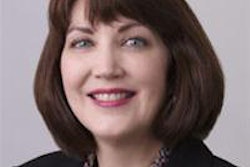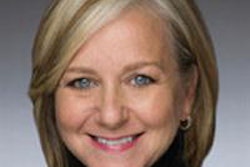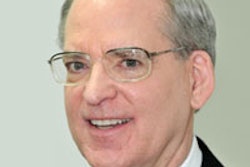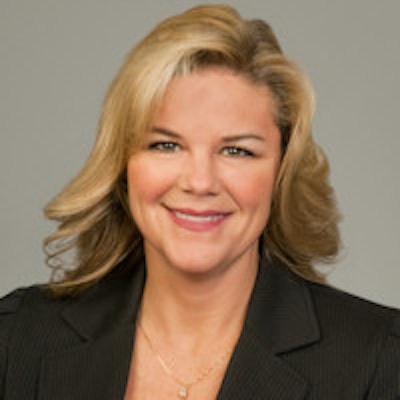
DrBicuspid.com is pleased to present the next installment of Leaders in Dentistry, a series of interviews with researchers, practitioners, and opinion leaders who are influencing the practice of dentistry and oral healthcare.
We spoke with Susan Savage, RDH, BSDH, currently president of the American Dental Hygienists' Association (ADHA). Savage earned her associate degree in dental hygiene in 1988 at Indiana University at Fort Wayne and received her Bachelor of Science in dental hygiene from Eastern Washington University in 2005. She has practiced dental hygiene for 24 years and is currently employed at the Mountain View Dental Center in Ellensburg, WA, where she is a clinical dental hygienist doing expanded duty dental hygiene functions and serving as the office manager. Savage also spent five years working in rural Alaska with the Alaska Native Health Services as a dental disease prevention specialist.
Her term as ADHA president will end at the end of June. Here she talks about how the dental hygiene practice has changed in the last 25 years, what role midlevel providers have in the U.S. healthcare system, and the 100th anniversary of dental hygiene practice.
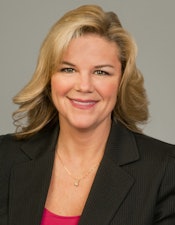 Susan Savage, RDH, BSDH
Susan Savage, RDH, BSDH
DrBicuspid: What led you to become a dental hygienist?
Susan Savage: I decided to become hygienist when I was a senior in high school. My mom was a nurse, and she encouraged me to consider something in the dental field, so I looked into dental hygiene. Our neighbor was a dentist, and I worked for him while a senior in high school. After just one day, I knew dental hygiene was what I wanted to do.
What were some of your early experiences like?
The first two offices I worked for were probably the best I could have hoped for. Both doctors created an environment for me that was very learning-oriented, and they encouraged me to share new things I had learned in school. They acted as mentors for me professionally and educationally, and treated me like I wasn't new to the profession, but rather as someone who had some of the newest information. So it was a great way to come into the profession, to work with doctors and other peers who treated me as an equal.
What have been some of your most gratifying moments?
I think what sticks most with me is the connection you make with the patient. When they come in and don't have the best oral healthcare and you can help turn them around. It is gratifying when they understand what you are telling them and when they come back in and their periodontal health has been restored. Initially, they haven't made oral hygiene a priority in their lives, and then they come back and you can see that they have made it a priority. They can show a change in behavior and lifestyle that they are very proud of. Sometimes when I see them in the community, they'll remind me "I'm a better brusher now!"
Also the connection with the kids -- to have them enter into dental care without fear by providing care in a gentle and caring manner.
How has the practice of dental hygiene changed since you began practicing?
I can say over the past 25 years, it has really changed a lot. I'm very impressed with new emerging technologies and techniques, equipment, and products such as lasers. I also am impressed with the shift in theory behind things I was taught in school. With things such as epidemiology and periodontal research, our understanding has expanded and gone more in-depth, and it is all supported by research.
One big thing that has changed the way I practice is that patients are coming into the office with a higher level of education [about oral health]. They are more self-educated and have very specific questions or more knowledge from the Internet. When I first started, patients would come in and get their teeth cleaned and listen to my advice, but they didn't ask questions about their oral health specifically or their overall health. So clearly all the information we are putting out there about oral health and overall health is helping!
The scope of practice has definitely changed as well, although that depends a lot on which state you practice in. When I moved from Indiana to Washington, for example, it was very different. I have been able to increase my education and provide more services with the scope of practice in Washington.
Are there still challenges for hygienists in terms of scope of practice?
Yes, we hear about this from hygienists in other parts of the country. Dental hygiene education is a very rigorous, difficult program to get into, with high educational and professional standards, and the ADHA supports those rigorous standards. Following completion of your dental hygiene education, you then must pass the national and regional exams. This creates a lot of knowledge for hygienists. But again, there are differences state to state in terms of what hygienists are allowed to do. In 1995, only five states allowed hygienists direct access to patients; now 35 states allow this in at least some circumstances. Some states are farther along than others, but we are getting there. We see these challenges across the U.S., and the ADHA is working with hygienists to enable them to work to the full scope of their practices.
Please share some of your experiences working in rural Alaska with the Alaska Native Health Services.
I was hired by a public health corporation to work as a hygienist in Bethel when I was just 22 years old. I had been in private practice for three years and liked it, but I wanted to do something different. So they hired me as a dental disease prevention specialist. There was one hygienist (me), 11 dentists, and 40,000 people. So my initial focus was on education. But after a short while I wondered what else we could do to help in terms of preventive care, and I realized I could do some of the clinical work I was trained to do. Next thing I knew I had a chair and was providing preventive services. It was so very gratifying to be able to do that, and it changed how I practiced dental hygiene completely.
With the background I had from my dental hygiene degree, the local fire department also encouraged me to become an emergency medical technician (EMT), so I did. But that is a whole other story!
I stayed in Bethel for four and a half years -- longer than I thought I would. But I never felt like my job was done. Ultimately, I left because I felt it was time to move on to a different part of my life. I left more for personal reasons than professional.
Do you think there is a role for midlevel providers (MLPs) in the U.S.?
Absolutely. The ADHA recognizes there are gaps in the oral health system and hygienists are a large part of the solution to fill the gaps in access to care and provide hygiene care to those in need. The gaps are increasing, and we need to find ways to get these people the services they are looking for. In 2004, the ADHA was the first organization to propose a new type of oral healthcare provider, the advanced dental hygienist practitioner (ADHP). And shortly after that, the association created the educational competencies to support it.
We don't consider ADHP the only solution. The ADHA has helped state associations look at and review all the models that are being proposed. It is an issue that is evolving and getting national attention, and it is interesting to see all the different models that people are discussing.
We don't believe it is a one-size-fits-all-solution issue. I think we can collaborate, but the focus needs to be on the patient and providing quality healthcare to the patient.
This year marks the 100th anniversary of dental hygiene practice. What does this mean to you?
One hundred years of dental hygiene to me means this idea that started out with one dentist has sustained over 100 years and grown and evolved to the point where we have MLPs and hygienists working out in remote areas of the U.S. I am amazed at how the profession has evolved and how we have provided quality care to people in the community and improved their oral health and overall health. And I am very proud of that and of being a hygienist. When people ask me what I do for a living, I don't say "dental hygiene" -- I say "I am a dental hygienist."
As president of the ADHA for the past year, what achievements are you proudest of?
I am very excited this year to be able to present the celebration of the century to hygienists. I am so glad we can come together and celebrate our achievements. One thing I've noticed this past year as I've been traveling around talking to hygienists all over the U.S. is that we all have a story, and we all do things differently or focus on different things in our practices. And yet we all come from the same place and share a common goal: We want to improve the oral health of our patients. We are all very passionate about that.
So it has been an invigorating year, going around the country talking to hygienists and especially students. Hygiene students today know more about the profession of dental hygiene than I did back when I was in school, and they know more about what they expect as they come out of school. They have so many choices now, and I am really impressed by that.




